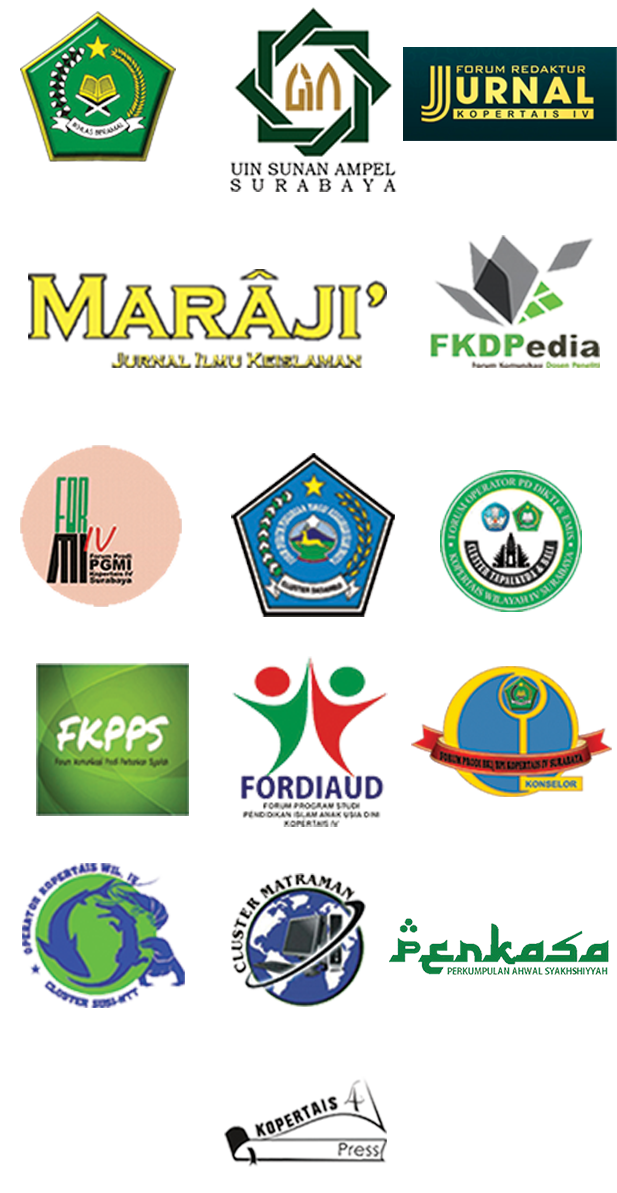Sustainable Management of Islamic Education
A Bibliometric Analysis
Abstract
This study presents a comprehensive bibliometric analysis of sustainable management in Islamic education, covering publications from 1994 to 2024. Utilizing data solely from the Scopus database, the research identifies key trends, contributors, and emerging themes within the field. A total of 58 documents were analyzed, focusing on their thematic content, publication frequency, and institutional affiliations. The findings reveal a significant increase in scholarly attention towards sustainable management in Islamic education, particularly in Southeast Asia, with institutions such as Emirates College for Advanced Education and Universiti Utara Malaysia leading the contributions. The study underscores the importance of integrating sustainability practices into Islamic educational frameworks and highlights areas requiring further research, including economic implications and innovation. The analysis offers valuable insights for scholars and practitioners aiming to enhance the sustainability of Islamic education in response to global challenges.
Downloads
References
Almufadda, A M S, B Fannani, A I A Alturki, and S Rohmah. “Medina Society: Lessons and Their Relevance in Indonesian Education Context.” International Journal of Interdisciplinary Educational Studies 16, no. 1 (2020): 1–14. https://www.scopus.com/inward/record.uri?eid=2-s2.0-85111291983&doi=10.18848%2F2327-011X%2FCGP%2FV16I01%2F1-14&partnerID=40&md5=5ff707858bc152a252ec78466c95bd7b.
Ash-Shiddiqy, Muhammad, Makhrus Makhrus, and Muhammad Ghafur Wibowo. “Cash Waqf Management for Education: Challenges, Solutions and Strategies.” Shirkah: Journal of Economics and Business 9, no. 2 (2024): 275–289.
Aziz, I, and A Afthanorhan. “Modeling the Social, Economic and Environmental Effects of Pondok Tahfiz.” Management Science Letters 10, no. 9 (2020): 1915–1922. https://www.scopus.com/inward/record.uri?eid=2-s2.0-85081270360&doi=10.5267%2Fj.msl.2020.2.023&partnerID=40&md5=2bf7f677ff9bbf8d69d97673fbd2ffcf.
Barid, Muh, Nizarudin Wajdi, Stai Miftahul, and Ula Nganjuk Indonesia. “Pesantren and The Pesantren Law In The Era of Globalisation and Industrial Revolution 4.0: Opportunities, Challenges, and Strategies.” Inovasi-Jurnal Diklat Keagamaan 18, no. 1 (June 25, 2024): 13–25. Accessed August 23, 2024. https://bdksurabaya.e-journal.id/bdksurabaya/article/view/483.
BR, R. “Teachers’ Belief and Practice in Environmental Education: Evidence from an Indonesian Islamic Primary School.” Education 3-13 (2024). https://www.scopus.com/inward/record.uri?eid=2-s2.0-85193240141&doi=10.1080%2F03004279.2024.2351553&partnerID=40&md5=9aaf464e2b5335f24de2c001fc3802d3.
Chen, Xieling, Di Zou, Haoran Xie, and Fu Lee Wang. “Past, Present, and Future of Smart Learning: A Topic-Based Bibliometric Analysis.” International Journal of Educational Technology in Higher Education 18, no. 1 (2021): 2.
Cobo, Manuel J, Antonio Gabriel López‐Herrera, Enrique Herrera‐Viedma, and Francisco Herrera. “SciMAT: A New Science Mapping Analysis Software Tool.” Journal of the American Society for information Science and Technology 63, no. 8 (2012): 1609–1630.
Fathani, Aqil Teguh, Novia Amirah Azmi, Muhammad Mughni, Imam Rasikh Islami, and Abdan Syukri. “Towards Sustainable Development of Islamic Higher Education: A Meta-Analysis of Challenges And Opportunities.” Millah: Journal of Religious Studies (2022).
Gabil, H, B Bensaid, T Tayachi, and F Jamaldeen. “The Need for Shari’ah-Compliant Awqāf Banks.” Journal of Risk and Financial Management 13, no. 4 (2020). https://www.scopus.com/inward/record.uri?eid=2-s2.0-85165419323&doi=10.3390%2Fjrfm13040076&partnerID=40&md5=1b05063c61a912ca1e86948fc04cc9ff.
Gumilang, Ahmad Naufal, and Sigit Purnama. “Digital Transformation in Islamic Education Management: Exploring the Vital Role of The UTAUT Model.” EDUCAN: JURNAL PENDIDIKAN ISLAM 8, no. 2 (2024).
Haris, Arkin, Aris Widodo, Irma Dwi Tantri, and Siti Sarah. “Eco-Maqāṣid in Climate Change Campaigns: From an Ecolinguistics Study to the Philosophy of Islamic Law.” Al-Manahij: Jurnal Kajian Hukum Islam (2024): 219–236.
Hassan, N M, A.H.B.M. Nor, and N A M Rom. “Institutional Collaboration in Enhancing Zakat Distribution for Production Asnaf : Reaping the Benefits or Diminishing the Institutions’ Roles.” In Innovation and Sustainable Competitive Advantage: From Regional Development to World Economies - Proceedings of the 18th International Business Information Management Association Conference, 5:2501–2514, 2012. https://www.scopus.com/inward/record.uri?eid=2-s2.0-84896387277&partnerID=40&md5=0290a92d6de74e1fd974236aea39517b.
Hefny, M A. “Water Management Ethics in the Framework of Environmental and General Ethics: The Case of Islamic Water Ethics.” In Water Ethics: Marcelino Botin Water Forum 2007, 25–42, 2009. https://www.scopus.com/inward/record.uri?eid=2-s2.0-84926156730&doi=10.1201%2F9780203875438-9&partnerID=40&md5=476bca87c07a391bee77ff3b6a94838f.
Hifasoh, Fikri, Mukhtar Latif, and Kemas Imron Rosyadi. “Sistem Inovasi Kiai Dalam Membangun Strategi Keberhasilan Pondok Pesantren Salafiyah Di Provinsi Jambi.” Journal Of Human And Education (JAHE) 4, no. 4 (2024): 933–937.
Mahsusi, Syihaabul Hudaa, Mustofa Fahmi, Kusen, Novi Diah Haryanti, and Muh Barid Nizarudin Wajdi. “Achieving Excellence: The Role of Digital Transformation in Madrasah Management and Islamic Culture.” Cogent Arts and Humanities (2024).
Mohiuddin, A, and A H B Borham. “Islamic Education in a Globalised World: Insights from Malaysia.” Islamic Quarterly 68, no. 1 (2024): 1–22. https://www.scopus.com/inward/record.uri?eid=2-s2.0-85196404366&partnerID=40&md5=6b2128ea551a5c60cfdde1ada32a5279.
Muhibah, Iis, and Deni Faisal. “ECONOMIC DEVELOPMENT OF ISLAMIC BOARDING SCHOOLS IN WEST JAVA: INDEPENDENCE AND SUSTAINABILITY.” Jurnal Ilmiah Mahasiswa Ekonomi Akuntansi 9, no. 3 (2024).
Ogutu, Hellen, Youssef El Archi, and Lóránt Dénes Dávid. “Current Trends in Sustainable Organization Management: A Bibliometric Analysis.” Oeconomia Copernicana 14, no. 1 (2023): 11–45.
Osman, M F, S Suib, and N H Md Noor. “The Function of the Zakat Funds Continuance Modal Insan in Their Sustainable in Islamic Pedagogy.” Journal of Critical Reviews 7, no. 6 (2020): 526–530. https://www.scopus.com/inward/record.uri?eid=2-s2.0-85084216343&doi=10.31838%2Fjcr.07.06.97&partnerID=40&md5=12066d045417eff3b80a3f0ebae0d4dd.
Priatna, H, N Gustini, and H Mulyani. “FACING GLOBAL CHALLENGES AND A NEW POST PANDEMI ERA IN INDONESIA: CURRICULUM CHANGES AND INNOVATIONS IN THE BACHELOR OF ISLAMIC EDUCATION MANAGEMENT PROGRAM.” Revista de Gestao Social e Ambiental 17, no. 7 (2023). https://www.scopus.com/inward/record.uri?eid=2-s2.0-85168581269&doi=10.24857%2Frgsa.v17n7-025&partnerID=40&md5=a6bbd9f0c6d83e6ee55adeade20739c6.
Randeree, Kasim. “Challenges in Human Resource Management and Organisational Development in the Arabian Gulf: An Analysis of National Identity and Diversity.” International Journal of Interdisciplinary Social Sciences 2, no. 5 (2008): 49 – 55.
Ritonga, M R, and S Amaroh. “TAWHID-BASED GREEN LEARNING IN ISLAMIC HIGHER EDUCATION: AN INSAN KAMIL CHARACTER BUILDING.” Qudus International Journal of Islamic Studies 10, no. 1 (2022): 215–252. https://www.scopus.com/inward/record.uri?eid=2-s2.0-85148306566&doi=10.21043%2Fqijis.v10i1.14124&partnerID=40&md5=d5a9bee770cbcac2e7e0eed5c0d7fa82.
Said, M S, H A Annuar, and H B Hamdan. “An Investigation into the Financial Sustainability of Islamic Saving, Credit Cooperative Society (SACCOS) in Tanzania.” International Journal of Ethics and Systems 35, no. 2 (2019): 242–259. https://www.scopus.com/inward/record.uri?eid=2-s2.0-85079792210&doi=10.1108%2FIJOES-11-2018-0159&partnerID=40&md5=1c2b1975d6527f0e28bac467d292a80f.
Saputra, Adzra Emalis, and Astuti Darmiyanti. “Analysis of Curriculum Administration at the Nurul Islam Karawang Integrated Quran Elementary School.” al-Afkar, Journal For Islamic Studies 7, no. 3 (2024): 1386–1394.
Sattar, H, T H Syed, M Raza, A Naseem, Y Ahmad, and M Z Mirza. “Uncovering the Indirect Impact of Work Ethic on Engineering Students’ Productivity through Positive and Negative Organizational Behaviors and Workaholism.” Sustainability (Switzerland) 13, no. 5 (2021): 1–16. https://www.scopus.com/inward/record.uri?eid=2-s2.0-85102898282&doi=10.3390%2Fsu13052922&partnerID=40&md5=f5a2d7dea0191b47a7af5613afd5363c.
Suhid, A, M Y M Naser, A M Ahmad, N C Abah, R Jusoh, and Z Zaremohzzabieh. “CHALLENGES AND READINESS OF ISLAMIC EDUCATION TEACHERS IN INNOVATIVE TEACHING AND LEARNING.” Jurnal Ilmiah Peuradeun 9, no. 2 (2021): 293–308. https://www.scopus.com/inward/record.uri?eid=2-s2.0-85135847960&doi=10.26811%2Fpeuradeun.v9i2.588&partnerID=40&md5=9131aba10a96be17c8b81621ff4f99dc.
Tolchah, Moch, and Muhammad Arfan Mu’ammar. “ISLAMIC EDUCATION IN THE GLOBALIZATION ERA; CHALLENGES, OPPORTUNITIES, AND CONTRIBUTION OF ISLAMIC EDUCATION IN INDONESIA.” Humanities & Social Sciences Reviews 7, no. 4 (2019): 1031–1037. http://dx.doi.org/10.18510/hssr.2019.74141.
Tolchah, Moch, and Muhammad Arfan Mu’ammar. “Islamic Education in the Globalization Era.” Humanities & Social Sciences Reviews 7, no. 4 (2019): 1031–1037.
Umar, U H, M H A Besar, and M Abduh. “Compatibility of the CSR Practices of Islamic Banks with the United Nations SDGs amidst COVID-19: A Documentary Evidence.” International Journal of Ethics and Systems 39, no. 3 (2023): 629–647. https://www.scopus.com/inward/record.uri?eid=2-s2.0-85139209854&doi=10.1108%2FIJOES-12-2021-0221&partnerID=40&md5=529f037b4d7cf2e2ee80d250290dec51.
Umar, Yusup. “Quality Management Of Pesantren-Based Education.” Journal Transnational Universal Studies (2023).
Wasehudin, Abdul Rohman, Muh. Barid Nizarudin Wajdi, and Marwan. “Transforming Islamic Education through Merdeka Curriculum in Pesantren.” Jurnal Pendidikan Islam 9, no. 2 (December 28, 2023): 255–266. Accessed February 3, 2024. https://journal.uinsgd.ac.id/index.php/jpi/article/view/28918.
Yaqin, H, Z Hartati, A Salabi, S Bahri, and H Mizani. “Influence of Image-Building, Financial Stability and Curriculum Development on Education Management with Moderating Effect of Educational Leadership: An Islamic Perspective.” Eurasian Journal of Educational Research 2021, no. 94 (2021): 422–443. https://www.scopus.com/inward/record.uri?eid=2-s2.0-85132047403&doi=10.14689%2Fejer.2021.94.19&partnerID=40&md5=f8acd620e73e6840a81981dcd23ec8c3.
Copyright (c) 2024 Muh Barid Nizarudin Wajdi, Yuli Marlina, Ansori Ansori, Nur Irsyadiah

This work is licensed under a Creative Commons Attribution-ShareAlike 4.0 International License.









